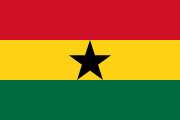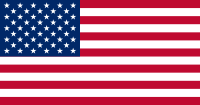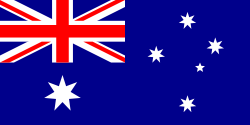TSV 1860 München
| Full name | Turn- und Sportverein München von 1860 | ||||||||||||||||||||||||||
|---|---|---|---|---|---|---|---|---|---|---|---|---|---|---|---|---|---|---|---|---|---|---|---|---|---|---|---|
| Nickname(s) | Die Löwen (The Lions), Die Sechz'ger ("Sixties" in Bavarian) |
||||||||||||||||||||||||||
| Founded | 17 May 1860 | ||||||||||||||||||||||||||
| Ground | Allianz Arena (Capacity: 69,901) |
||||||||||||||||||||||||||
| Chairman | Rainer Beeck | ||||||||||||||||||||||||||
| Manager | |||||||||||||||||||||||||||
| League | 2nd Bundesliga | ||||||||||||||||||||||||||
| 2007-08 | 2nd Bundesliga, 11th | ||||||||||||||||||||||||||
|
|||||||||||||||||||||||||||
TSV 1860 München, commonly known as 1860 Munich is a German sports club based in Munich, Bavaria. The club's football team plays in the Second Bundesliga, after relegation from the Bundesliga following the 2003–04 season. The club was one of the founding members of the Bundesliga in 1963 and has played a total of 20 seasons in the top flight.
Contents |
History
Origins of the club
The roots of the TSV's founding as a physical fitness and gymnastics association go back to a meeting held 15 July 1848 in a local pub, Buttleschen Brauerei zum Bayerischen Löwen. Banned in 1849 by the Bavarian monarchy for "republican activities" , the club was formally reestablished on 17 May 1860 and after mergers with a number of other local associations in 1862 was known as Turnverein München. A football department was created on 6 March 1899 and played its first matches against other squads three years later.
See also: 1860 in football (soccer).
From the turn of the century to WWII
In 1911, the team adopted the familiar lion to their crest and in 1919 was re-named TSV München 1860. By the mid 1920s they were playing competitive football in the country's upper leagues, like the Bezirksliga Bayern, making a national semi-final appearance in 1927. Die Löwen challenged for the championship in 1931 but dropped a 2:3 decision to Hertha Berlin. Two years later they made another semi-final appearance which they lost to Schalke 04 who were on their way to becoming the dominant side in German football through the 1930s and 40s.
In 1933 German football was re-organized under the Third Reich into sixteen top-flight divisions known as Gauligen. TSV joined the Gauliga Bayern where they earned second place finishes in 1934, 1938, and 1939, before finally capturing a division championship in 1941. Their subsequent playoff appearance saw them finish second in their pool to finalist Rapid Wien. The following season they failed to advance to the national playoff rounds, but did go on to earn their first major honours by defeating Schalke 04 to capture the Tschammerpokal, known today as the German Cup. TSV returned to the national playoffs again in 1943, progressing to the quarterfinals.
Post war
After World War II, 1860 played in the top flight Oberliga Süd as a mid-table side, suffering relegation for a period of three years in the mid 1950s. However, they counted when it mattered most in 1963 by winning the league championship and with it automatic entry into Germany's new professional league, the Bundesliga, ahead of rivals Bayern Munich who would have to wait two seasons for their own top flight debut since the DFB did not want two teams from the same city in the new league. 1860 continued to perform well through the mid 1960s: they captured their second German Cup in 1964, played the 1965 Cup Winners Cup final against West Ham United – losing 0:2, came away as Bundesliga champions in 1966, and finished as vice-champions the next year.
The 1970s and 1980s
Those performances were followed by poor showings in three consecutive seasons leading to relegation in 1970 to the Regionalliga Süd (II). It took 1860 seven years to make their way back to the first division, through a three-game play-off contest with Arminia Bielefeld, only to be immediately relegated again. A year later they were back, this time for a two year stay. Then in 1982 disaster struck as they were relegated once again and then forced into the tier III Amateur Oberliga Bayern when financial problems led to the club being denied a licence.
The 1990s to the present
The club's exile from the Bundesliga would last a dozen years. They were promoted to the top flight in 1994, but found themselves in immediate danger being sent back down again. However, president Karl-Heinz Wildmoser and manager Werner Lorant made several shrewd purchases including striker Olaf Bodden, winger Harald Cerny, playmaker Peter Nowak, and defensive stoppers Miroslav Stević, Jens Jeremies and Manfred Schwabl. Stars like Abedi Pele, Thomas Häßler and Davor Šuker played for 1860 as their careers were winding down, becoming crowd favourites and making important contributions.
Under the heavy-handed, dictatorial leadership of Wildmoser and Lorant, the combination of proven veterans and young talent helped the club avoid relegation and become a decent mid-table side. 1860 earned a fourth place Bundesliga finish in 2000 and were entered into the Champions League 3rd qualifying round where they faced Leeds United, however a 3-1 aggregate defeat saw them play in the UEFA Cup that season, advancing to the third round where they were put out by AC Parma. However, the club was unable to build on this success and after some mediocre performances by the team, manager Lorant was fired.
After a decade in the top division, 1860 spectacularly burnt out in the 2003–04 season with a 17th place finish that returned the club to the 2. Bundesliga. Wildmoser made the extremely controversial decision to co-habitate with hated rivals Bayern Munich in the Allianz Arena, a move that outraged fans and led to accusations of a sell-out. His downfall came when he and his son Karl-Heinz Wildmoser Jr. were caught in a bribery scandal around the awarding procedure for the contract to build the stadium.
In addition to flirting with relegation to the Regionalliga Süd (III) in the 2005–06 season, 1860 experienced severe financial difficulties. Stadium partner Bayern Munich bought out TSV's 50% interest in the Allianz Arena in late April 2006 for €11 million, providing the club some immediate financial relief. Following this move, the DFB (Deutscher Fussball Bund or German Football Association) was satisfied with the financial health of the club and duly issued 1860 a licence to play in the 2. Bundesliga for the 2006-07 season. [1]
TSV hired several new managers during its 2. Bundesliga period. The first was Rudi Bommer, followed by Reiner Maurer and Walter Schachner. Also, former German national squad player Stefan Reuter as a general manager. However, neither of the new managers could lead the squad back to the 1. Bundesliga. 1860's current team is due to the financial situation very young and consists of many talents from its own football school. The current coach, Marco Kurz, is a former player from TSV's Bundesliga times and tries to gradually develop a team that can make it back to the 1. Bundesliga.
Reserve team
The TSV 1860 München II, or, previous to that, the TSV 1860 München Amateure, have been historically quite successful, too, on Bavarian level. The team plays in the Regionalliga Süd since 2004, missing out on 3rd Liga qualification in the 2007–08 season.
The second eleven struggeled during the clubs years outside professional football, but rose through the ranks again after the clubs revival in the early 1990s and returned to the Bayernliga in 1996, winning the title in its first season there and promotion to the Regionalliga. The team belonged to the Regionalliga until 2001 and then again from 2004 onwards.
The club is the only one in Bavaria to have won the Bayernliga with its first and second team.
Ground
TSV 1860 München play their home matches in the Allianz Arena, which they share with city rivals Bayern Munich. The club's inaugural game at the Allianz Arena was a friendly played against FC Nuremberg on 30 May 2005. The stadium hosted the opening match of the 2006 World Cup between Germany and Costa Rica and three other first round contests, a Round of 16 match between Germany and Sweden, and a semi-final between France and Portugal.
Until recently the club co-owned the facility with Bayern Munich, but sold its 50% share on 28 April 2006 to help resolve a serious financial crisis that saw TSV facing looming bankruptcy.
Originally TSV played in the Stadion an der Grünwalderstraße (commonly known as "Sechzger Stadion"), built in 1911, and which they also shared with Bayern Munich between 1925 and 1972. Both clubs then moved to the new Olympiastadion built for the 1972 Olympic Games. TSV moved back to the old ground several times from 1972 on, with the years between 1982 and 1995 being the longest period. In the 2004 season "TSV" spent one last year at Sechzger as the Allianz was being readied.
Recent seasons
TSV 1860 München
| Year | Division | Position |
| 1999-2000 | Fussball-Bundesliga (I) | 4th |
| 2000-01 | Fussball-Bundesliga | 11th |
| 2001-02 | Fussball-Bundesliga | 9th |
| 2002-03 | Fussball-Bundesliga | 10th |
| 2003-04 | Fussball-Bundesliga | 17th ↓ |
| 2004-05 | 2nd Bundesliga (II) | 4th |
| 2005-06 | 2nd Bundesliga | 13th |
| 2006-07 | 2nd Bundesliga | 8th |
| 2007-08 | 2nd Bundesliga | 11th |
| 2008-09 | 2nd Bundesliga |
TSV 1860 München II
| Year | Division | Position |
| 1999-2000 | Regionalliga Süd (III) | 7th |
| 2000-01 | Regionalliga Süd | 16th ↓ |
| 2001-02 | Oberliga Bayern (IV) | 2nd |
| 2002-03 | Oberliga Bayern | 2nd |
| 2003-04 | Oberliga Bayern | 1st ↑ |
| 2004-05 | Regionalliga Süd (III) | 15th |
| 2005-06 | Regionalliga Süd | 15th |
| 2006-07 | Regionalliga Süd | 13th |
| 2007-08 | Regionalliga Süd | 13th |
| 2008-09 | Regionalliga Süd (IV) |
Honours
- German champions (Bundesliga): 1966
- German championship runners-up: 1931, 1967
- German Cup: 1942, 1964
- Cup Winners Cup finalist: 1965
- UEFA Cup: 2001, third round
- Oberliga Süd (I) champions: 1963
- Gauliga Bayern champions: 1941
- Gauliga Bayern, southern division champions: 1943
- 2nd Bundesliga Süd (II) champions: 1979
- 2nd Bundesliga Süd (II) runners-up: 1977
- 2nd Oberliga Süd (II) champions: 1955, 1957
- Oberliga Bayern (III) champions: 1984, 1991, 1993
Reserve team
- Oberbayern Cup winner: 1997, 1998, 2003
- Oberliga Bayern (IV) champions: 1997, 2004
- Oberliga Bayern (IV) runners-up: 2002, 2003
- Amateurliga Bayern-Süd (III) champions: 1961
- Landesliga Bayern-Süd (V) champions: 1996
- Landesliga Bayern-Süd (IV) runners-up: 1982
Youth
- German Under 19 championship
- Runners-up: 1997
- German Under 17 championship
- Champions: 2006
- Runners-up: 1984
- German Under 19 Cup
- Winners: 2000, 2007
- Bavarian Under 19 championship
- Winners: 1963, 1982, 1983, 1988, 1998 (reserve team)
- Runners-up: 1958, 1969, 1970, 1977, 1984, 1986
- Bavarian Under 17 championship
- Winners: 1975, 1980, 1984
- Runners-up: 1979, 1981
- Bavarian Under 15 championship
- Winners: 1979, 1980, 1997, 1998
Players
Current squad
|
|
For recent transfers, see List of German football transfers summer 2008.
Notable former players

 Ernst Willimowski
Ernst Willimowski Rudi Brunnenmeier
Rudi Brunnenmeier Thomas Häßler
Thomas Häßler Jens Jeremies
Jens Jeremies Vidar Riseth
Vidar Riseth Martin Max
Martin Max Erik Mykland
Erik Mykland Piotr Nowak
Piotr Nowak Abedi Pelé
Abedi Pelé Daniel Borimirov
Daniel Borimirov Petar Radenković
Petar Radenković Davor Šuker
Davor Šuker Rudi Völler
Rudi Völler Taylor Twellman
Taylor Twellman Josh Wolff
Josh Wolff Shao Jiayi
Shao Jiayi Awudu Issaka
Awudu Issaka Berkant Göktan
Berkant Göktan Paul Agostino
Paul Agostino Ned Zelic
Ned Zelic
Notable former coaches
 Fred Spiksley
Fred Spiksley Max Merkel
Max Merkel Werner Lorant
Werner Lorant Walter Schachner
Walter Schachner Peter Pacult
Peter Pacult
External links
- Official team website
- The Abseits Guide to German Soccer
- 1860wiki
- eufo.de European football club profiles and current team rosters
|
TSV 1860 München
|
|||||||||||||
|---|---|---|---|---|---|---|---|---|---|---|---|---|---|
|
|||||||||||||
|
German 2. Bundesliga (II) Football Clubs (2008-09)
|
|||||||||||||
| Alemannia Aachen | Rot Weiss Ahlen | FC Augsburg | MSV Duisburg | FSV Frankfurt | SC Freiburg | SpVgg Greuther Fürth | FC Hansa Rostock | FC Ingolstadt 04 | 1. FC Kaiserslautern | TuS Koblenz | 1. FSV Mainz 05 | 1860 München | 1. FC Nuremberg | Rot-Weiß Oberhausen | VfL Osnabrück | FC St. Pauli | SV Wehen Wiesbaden
|
|||||||||||||
|
German Regionalliga Süd (IV) football clubs (2008-09)
|
|||||||||||||
|
|||||||||||||
|
German Under 19 Bundesliga South/Southwest football clubs (2008-09)
|
|||||||||||||
|
|||||||||||||
|
German Under 17 Bundesliga South/Southwest football clubs (2008-09)
|
|||||||||||||
|
|||||||||||||
|
German Under 15 Bayernliga Süd football clubs (2008-09)
|
|||||||||||||
|
|||||||||||||
|
||||||||||||||||||||||||||